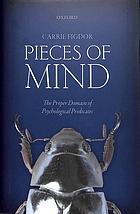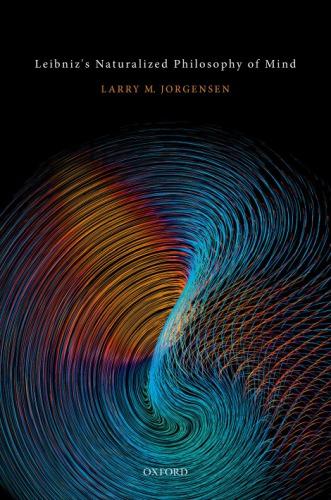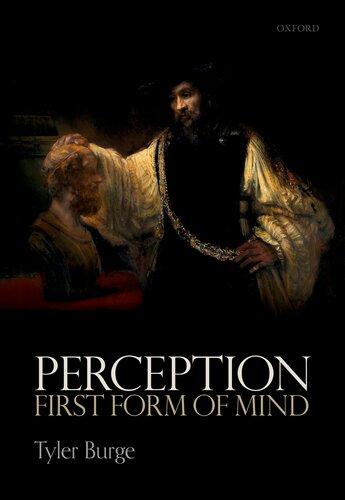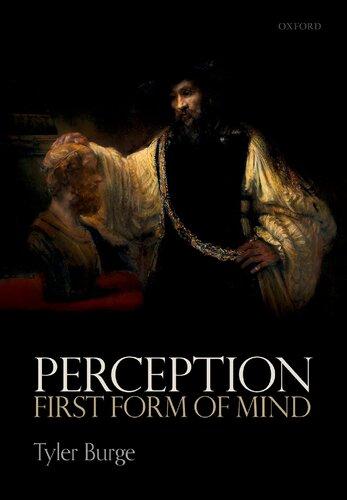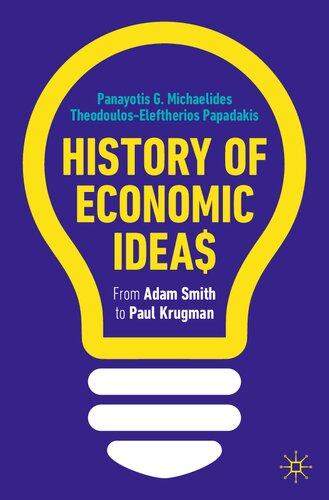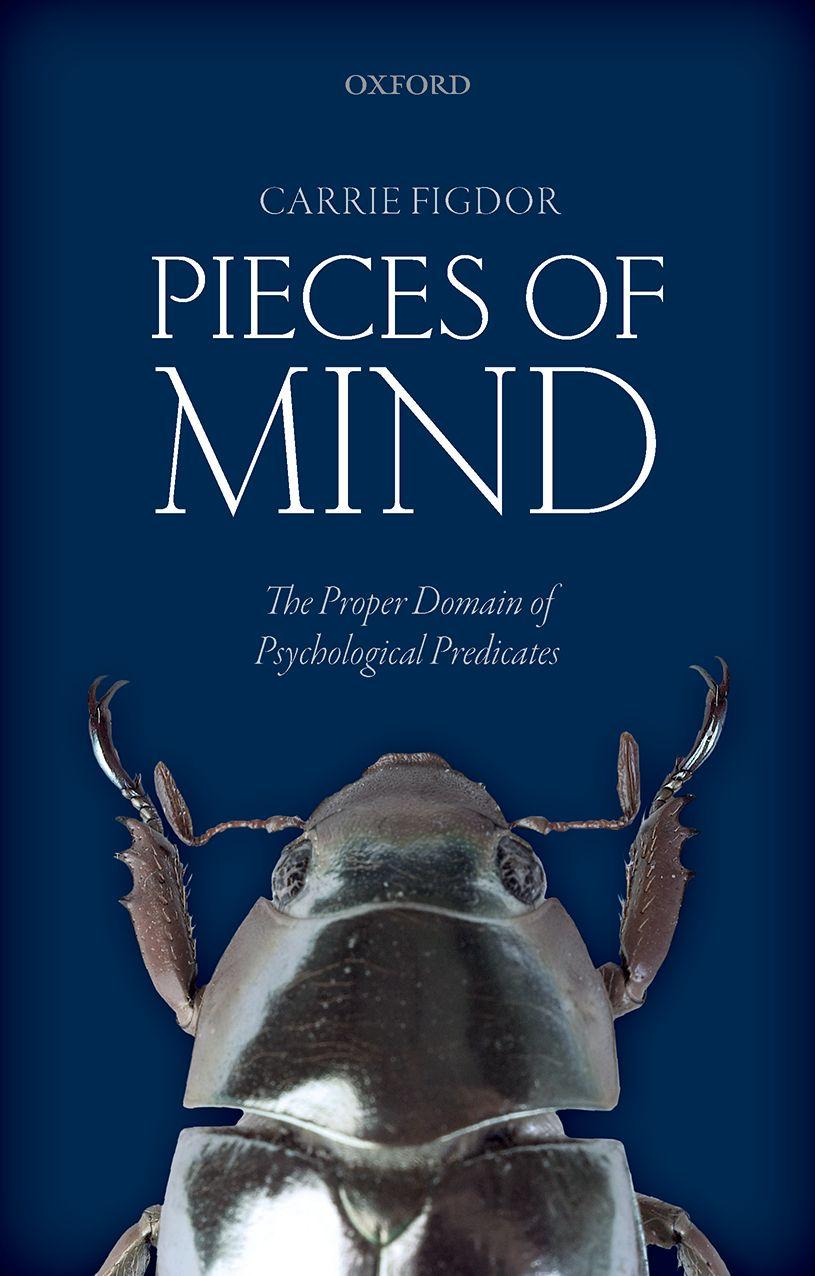PiecesofMind
TheProperDomainof PsychologicalPredicates
CarrieFigdor
GreatClarendonStreet,Oxford,OX26DP, UnitedKingdom
OxfordUniversityPressisadepartmentoftheUniversityofOxford. ItfurtherstheUniversity’sobjectiveofexcellenceinresearch,scholarship, andeducationbypublishingworldwide.Oxfordisaregisteredtrademarkof OxfordUniversityPressintheUKandincertainothercountries
©CarrieFigdor2018
Themoralrightsoftheauthorhavebeenasserted
FirstEditionpublishedin2018
Impression:1
Allrightsreserved.Nopartofthispublicationmaybereproduced,storedin aretrievalsystem,ortransmitted,inanyformorbyanymeans,withoutthe priorpermissioninwritingofOxfordUniversityPress,orasexpresslypermitted bylaw,bylicenceorundertermsagreedwiththeappropriatereprographics rightsorganization.Enquiriesconcerningreproductionoutsidethescopeofthe aboveshouldbesenttotheRightsDepartment,OxfordUniversityPress,atthe addressabove
Youmustnotcirculatethisworkinanyotherform andyoumustimposethissameconditiononanyacquirer
PublishedintheUnitedStatesofAmericabyOxfordUniversityPress 198MadisonAvenue,NewYork,NY10016,UnitedStatesofAmerica
BritishLibraryCataloguinginPublicationData
Dataavailable
LibraryofCongressControlNumber:2017958148
ISBN978–0–19–880952–4
Printedandboundby CPIGroup(UK)Ltd,Croydon,CR04YY
LinkstothirdpartywebsitesareprovidedbyOxfordingoodfaithand forinformationonly.Oxforddisclaimsanyresponsibilityforthematerials containedinanythirdpartywebsitereferencedinthiswork.
Inmemoryof
WalterFigdor,RaeFigdor,andGuacaipuroMontesinos
3.Cases:QuantitativeAnalogy31
7.1GeneralRemarks
7.2TheFirstVariant:TheTechnical-Behaviorist
7.3TheLiteralistRespondstotheFirstVariant
7.4TheSecondVariant:ExsanguinatedProperties
7.5TheLiteralistRespondstotheSecondVariant
7.6ConcludingRemarks
8.LiteralismandMechanisticExplanation147
8.1GeneralRemarks
8.2HomuncularFunctionalismandMechanisticExplanation
8.3SeekingaPsychologicalException
9.LiteralismandMoralStatus166
9.5TheFearofMechanisticReduction
Acknowledgments
Thisbookbeganasanattempttounderstandmechanisticexplanationof mindasitwasbeingimplementedinthecognitivesciences.Thebulkof itconsistsofexaminingthe firstpiecesofthatpuzzle theonesthat usuallyescapenotice,asWittgensteinmightsay.Theresultisanexample ofwhatcanhappenwhenyouapproachanissuewithoutaimingata particularconclusion.Itisalsoanexampleofwhathappenswhenother peoplewanttoknowwhatyou’redoingwhileyou’restill figuringthings out.InitialexploratoryfeintspresentedattheSocietyforPhilosophyand Psychologyannualmeetinginsummer2009(atIndianaUniversity–Bloomington)andatRuhr-UniversitätBochuminsummer2013(courtesyof “WhatisCognition?” workshoporganizersCameronBuckner, EllenFridland,andAlbertNewen)havelittlesuperficialresemblanceto thepenultimatedraftdiscussedattheUniversityofEdinburghinsummer2016inaworkshoporganizedbyMarkSprevak(whosesupporthas beenparticularlynoteworthy).Butitreallywasthesameprojectall along,evenifalargeamountofresearchinempiricalandphilosophical literaturesdidn’tmakeitintothebook.
Academicyear2013–14,asafellowattheUniversityofPittsburgh CenterforPhilosophyofScience(thendirectedbyJohnNorton),was invaluableforprovidingmewiththetime,support,andinformedcritical pushbackIneededatjusttherighttime.IwasgreatlyhelpedbyinteractionswithfellowsAristidesArageorgis,OriBelkind,MelindaFagan, AllanFranklin,MarcoGiovanelli,LeahHenderson,ArnaudPocheville, andJoshuaRosaler,aswellasPittsburghfacultyandstudentsJimBogen, TreyBoone,MazviitaChirimuuta,PeterMachamer,JoeMcCaffrey,and MarkWilson.IalsothanktheUniversityofIowafor financialsupport formyyearatPittsburghandfortravelgrantstopresentpartsofthe projectatotherinstitutions.
InadditiontomycolleaguesattheUniversityofIowa includingapt historicalreferencessuggestedbyAliHasanandCarrieSwanson,and studentsMarkBowman,ThomasButler,HyungraeNoh,andDerek Voel-Pel Ihavehadhelpfulresponses(andmuchpushback)onvarious issuesraisedwithinthisbookfromaudiencesattheCUNYGraduate
CenterCognitiveScienceprogram,DurhamUniversity,HebrewUniversity InstituteforAdvancedStudy,ENS -InstitutNicod,Northwestern University,StanfordUniversity,UniversityofCalifornia– Riverside, UniversityofColorado–Boulder,UniversityofManchester,Universityof Melbourne,WashingtonUniversityatSt.Louis,andIndianaUniversity. Ialsothankaudiencesatpresentationsofsomeofthematerialatmeetings oftheAmericanPhilosophicalAssociation,AristotelianSociety/Mind Association,AustralasianAssociationforPhilosophy,SocietyforPhilosophyandPsychology,andSouthernSocietyforPhilosophyandPsychology.
Inaddition,manyindividualsofferedinsightfulcommentsandraisedhard questionseverystepoftheway.Theseincludetwoanonymousreviewers atOxfordUniversityPress,whosequestionshelpedmestrengthenthe bookthroughout.Otherswhocommentedondraftchaptersoraspects oftheprojectincludeMikioAkagi,ColinAllen,MichaelAnderson,Brice Bantegnie,BillBechtel,IanBisset,DavidChalmers,AndyClark,Carl Craver,BryceHuebner,TomKane,FredKeijzer,UriahKriegel,Suilin Lavelle,JonnyLee,KeyaMaitra,CoreyMaley,RonMallon,Christopher Mole,CarlosMontemayor,GualtieroPiccinini,JoelleProust,MizaRashid, RobertRupert,EricSchwitzgebel,GeorgTheiner,MichaelWeisberg,and WayneWu.IwouldalsoliketothankPeterMomtchiloffatOUPforhis helpguidingmethroughthepublicationprocess;theOUPeditorialstaffto whomthisbookwasassigned;andmyindexer,LaceyDavidson.IfI’veleft someoneout,Iregrettheomissionandhopetomakeupforitinthefuture.
Finally,IwouldliketothankBill,Liz,andTomfortheirindispensable backgroundsupport.
1 Introduction
1.1GeneralRemarks
Greatcases,likehardcases,makebadlaw.Forgreatcasesarecalled great,notbyreasonoftheirrealimportanceinshapingthelawofthe future,butbecauseofsomeaccidentofimmediateoverwhelming interestwhichappealstothefeelingsanddistortsthejudgment.
(N.Sec.Co.v.UnitedStates,193U.S.197,400(1904) (Holmes,J.,dissenting))
Thisbookisanattempttounderstandaspecificandongoingprocessof conceptualrevision:therevisioninpsychologicalconceptsinresponse tonewdiscoveriesthroughoutthelifesciences.Becausetheclaimthata conceptualtransitionisgoingonisitselfcontested,thebookshowswhy itisplausibleaswellashowusesofpsychologicalpredicatesshould plausiblybeinterpretedinitslight.IcalltheviewIholdLiteralism. Whenscientistsreportthatfruit fliesandplantsdecide,bacteriacommunicatelinguistically,andneuronsprefer,theLiteralistclaimsthatthe mostplausibleinterpretationoftheseunexpectedusesofpsychological predicatesistheLiteralone,explainedmorefullyinwhatfollows.This interpretationreflectstheempiricallydrivenrevisioninourunderstandingofthenatureofthepropertiestowhichtheyrefer.Mygoalsinthis bookaretodefendLiteralismandexploreitsimplicationsforthephilosophicalprojectsofnaturalizingthemindandunderstandingtheroleof themindingroundingmoralstatus.¹
¹InFigdor(2017)IlabeledmyviewAnti-Exceptionalismwithoutclearlydistinguishing itsmetaphysicalandsemanticcomponents.Idistinguishthemhere:Literalismistheoverall view,andAnti-Exceptionalismisitsmetaphysicalcomponent.Also,inthisintroduction Iusetheterms “predicate” , “term”,and “concept” interchangeably.Insubsequentchapters, Iwilldrawdistinctionsbetweenthemwherenecessary.
Althoughconceptualchangeisaveneratedtopicwithinphilosophy ofscience,Ihavethreemainmotivationsforexaminingthisparticular transitionforabroaderaudience.First,thenatureofmentalcapacities isintrinsicallyinterestingtoalmosteveryone unlike,say,thenature ofacidity(Chang2012).Thetopicofp sychologicalconceptualchange inheritsthisinterest.Second,thereisapressingneedtomakesense ofscientists ’ extensive,systematic,andselectiveuseofpsychological languagetoexplainnewdiscoverie sofbiologicalcomplexity.²Some philosophershavemadeimportantcontributionstothisprojectby discussingspecificcasesoftheissue(e.g.BennettandHacker2003and Bennettetal.2007incognitiveneuroscience,CalvoandKeijzer2009in plantscience).Whatisneededisrecognitionofthepervasivenessof thephenomenonand,ifpossible,aunifiedaccountofitthatshowswhy researchersacrossawiderangeofbiologicalsciencesarerationally justifiedinusingthetermstodescribephenomenaintheir fields. Third,cognitiveresearchersareactivelyseekingtorevealthepatterns ofbrainactivitysupportingmentalfunctionatnumerouslevelsof organizationandcomplexityandtodeveloptheconceptualframework adequateforcharacterizingthesepatterns(e.g.PriceandFriston2005; Carandini2012;PoldrackandYarkoni2016).Thisresearchmaybe mistakenlyconstrainedifwefailtoquestionthereceivedviewofthe conditionsonanadequatescientificexplanationofthemind.Asarticulatedinphilosophyofmindandpsychology,thisviewclaimsthateven ifpsychologicaltermsarenoteliminatedfromscientificdiscourse (Churchland1981),anaturalisticexplanationrequiresthattheybe translatableintoorreplaceableinseriousscientificcontextsbyanonpsychologicalvocabulary.ParaphrasingFodor(1987:97),ifpsychologicalpropertiesarereal,theymustreallybesomethingelse.Butthere maybeabetterwaytounderstandwhatanaturalisticexplanationof mindrequires.
Fromtheperspectivedefendedhere,whatisoccurringnowwith psychologicalconcepts(andterms)iswhathasalreadyhappenedwith manyothers:weareaccommodatingtheconceptsandthetheoriesin whichthey figuretonewempiricalknowledge.Thistransitionisnot
²Ifocushereonbiologicalentities,settingasideartificialintelligentagentsandother casesforfuturework(thoughIdobrieflyconsiderthemwhererelevant).Theassumed biologicalbackgroundisstrategic;Idonotuseittodrawaconceptualdistinction.
instantaneous.Justasittooktimetoacceptgeometryasprovidinga literalaccountofreality(Pylyshyn1993:555–6),itwillalsotaketimeto adjust,andadjustto,theactualextensionsofpsychologicalpredicates. Whatmakesthiscasemorecontentiousthanotherscientifically-driven revisionsofconceptualframeworksisthatitentailsthatthestandardsfor properusearebeingdetachedfromtheirtraditionalhomeinspecifically humanbehaviorandcognition.Theendstateofthistransitionistheend ofpsychologicalandpsychological-conceptualanthropocentrism.The quotationabovefromU.S.SupremeCourtJusticeOliverWendellHolmes expressesthisperspective.Humanmindsaregreatcases,buttheyarenot thestandardfordeterminingtheproperextensionsofpsychological predicates.Aswithmuchofnature,whatismostaccessibleandfamiliar tousdoesnotgroundanaccurateaccountofthephenomena.³Howthis separationisoccurring evenhowit canpossibly occur willbeclarified intherestofthisbook.
Formanyreaders,itmaybehelpfultorelatethistransitiontoWilfrid Sellars’ (1963/1991)well-knowndiscussionofscientificprogressandits relationtothehumanself-conception.In PhilosophyandtheScientific ImageofMan,Sellarspresentstwoidealized,andatleastapparently competing,conceptionsofman-in-the-world,dubbedtheManifest andScienti fi cImages.TheManifestImageisaconceptualschemeof peopleandthingsinwhichhumanbeingsareexceptionalintheworld ofthings.TheScienti fi cImageisaconceptualschemeinwhichwe introducetheoreticalterms,referringtotheoreticalentities,toexplain thethingsandbehaviorspresenttousintheManifestImage.Somuch isbroadlyfamiliar.
LessfamiliaristhefactthattheManifestImageitselfwasa “ refinement” or “modification” ofanearlierconceptualscheme,theOriginal Image.Thisimageis “aframeworkinwhichallthe ‘objects’ arepersons ” : animageinwhichalltheobjectsarecapableofthefullrangeofpersonalactivity, themodificationconsistingofagradualpruningoftheimplicationsofsaying withrespecttowhatwewouldcallaninanimateobject,thatitdidsomething.
(Sellars1963/1991:12)
³TheunadulteratedlinesfromAristotlearefrom Physics BookI: “Thenaturalcourseis toproceedfromwhatisclearerandmoreknowabletous,towhatismoreknowableand clearbynature;forthetwoarenotthesame.Hencewemuststartthuswiththingswhich arelessclearbynature,butclearertous,andmoveontothingswhicharebynatureclearer andmoreknowable.”
Sellarsadds:
Fromthispointofview,therefinementofthe ‘original’ imageintothemanifest imageisthegradual ‘de-personalization ’ ofobjectsotherthanpersons.That somethinglikethishasoccurredwiththeadvanceofcivilizationisafamiliarfact. Evenpersons,itissaid(mistakenly,Ibelieve),arebeing ‘depersonalized’ bythe advanceofthescientificpointofview.(1963/1991:10)
GivenSellars ’ characterizationofthetransitionfromtheOriginalto theManifestImage,itwouldappearthatpruningtheperson-appropriate predicatesandpruningthepsychologicalpredicatesareoneandthesame exercise.⁴ However,scientificdiscoveriesareshowingthattheintuitive chasmbetweenthebehavioral flexibilityandintelligenceofhumanbeings andthebehavioralinflexibilityandstupidityofnonhumanbeingsis empiricallyunsustainable.Thischasmpresumablyhelpedmotivatethe pruningprocess;itcertainlyhelpstomaintaintheManifestImage.But justastherampantanthropomorphismoftheOriginalImagegavewayto theManifestImage,thelatter’spsychologicalanthropocentrismisgiving waytoaScientificImageinwhichthepsychologicalandthehuman(the “person-appropriate”)aredecoupledandconceptuallyseparable,yetnot therebydehumanizedordehumanizing.
Literalismisoneresponsetothesedevelopments.OnSellars ’ view, tracesoftheOriginalImagelingerintheManifestImageinusesofsuch predicatesinrelationtononhumans “forpoeticandexpressivepurposes ”,suchaswhenascribingprocessesofdeliberationtononhumans anddescribingtheirdoingsasactions.Forexample, “theuseoftheterm ‘habit’ inspeakingofanearthwormasacquiringthehabitofturningtothe rightinaT-maze,isametaphoricalextensionoftheterm” (Sellars1963/ 1991:12).OntheLiteralistview,biologistshavenotbecomealarmingly poeticintheirpeer-reviewedpublicationsorprofessionalpresentations overthepastfewdecades.Whentheysaythatwormscanacquirehabits, theymeanthatwormscanacquirehabits.Infact,theycanbeclassically conditioned:whatscientistsnowaremostinterestedin findingoutabout C.elegans isnotsomuchwhatspeciesmemberscanlearn,butwhatthey
⁴ Forpresentpurposes, ‘ persons ’ (ofthenon-legalsort)and ‘humans’ maybeconsidered co-extensive.Themetaphysicalcategoryofpersonhood(ascontrastedwithasocialor evaluativecategory)isassociatedwiththosewithhumanbodies(Sapontzis1981),while contemporaryresearchersindehumanizationoftenemploytheterms ‘depersonalization’ and ‘dehumanization’ synonymously(e.g.Loughnanetal.2010).
can ’t(Rankin2004).Scientificprogressisyieldingtheoppositeofwhat eliminativisminphilosophyofmind(Churchland1981)predictsor recommends.FromaLiteralistperspective,itisacontingentfactthatit hastakensolongforustobeinapositiontotestscientificallywhetherthe drasticpruningcharacteristicofthetransitionfromtheOriginaltothe ManifestImageisbasedonafundamentalmistake.
Asweshallsee,metaphoricalorotherwisenon-Literalistinterpretationsoftheseusesremainliveoptions.Buttheseinterpretationsmust behard-won.FortheLiteralistpositionrestsonthefamiliarandwidely acceptedideathatsciencehaspriorityovercommonsenseintuitionin determiningtheextensionsofpredicatesdenotingnaturalphenomena. Scienceiseliminatingtheanthropocentrismfromthepsychological,not eliminatingthepsychological.Intuitionsbasedonsubjectivelyfamiliar phenomenaremainanessentialsourceofevidenceabouthowhuman capacitiesappeartousandanimportant,ifparochial,sourceofevidence abouttheirnature.Nevertheless,ashiftawayfrompsychologicalanthropocentrismimpliesthattheconceptualadjustmentswillbeassimilatedinto thefamiliarhumandomainaslongaswecontinuetousetheseconcepts tocharacterizeourselvesandexplain ourbehavior.Thisislikely,given theirutility.
TheconceptualchangeIhaveinmindinvolvesarevisionorprecisificationofreferencetoreflectnewscientificdiscoveriesregardingpsychologicalcapacitiesorproperties.Thechangeisanalogoustotheway scientificdiscoveryandtheorizingenabledustodetermineaprecise characterizationofthenatureofgoldand,inconsequence,toprecisify ourreferentialintentionsandmodifyourusesof “gold”.Suchscientificallydrivenconceptualchangeshavemetaphysicalaswellassemantic components.Toa firstapproximation,mymetaphysicalposition Anti-Exceptionalism holdsthatalltherelevantscientificevidence showsthatpsychologicalcapacitiesarepossessedbyafarwiderrange ofkindsofentitiesthanoftenassumed.Wearestill findingoutwhich capacitiesandwhichentities,butthetrendisunmistakable evenwhen focusingonbiologicalentities,asIdointhisbook.(Thisimportant restrictionwillbediscussedfurtherinChapter4.)Literalismclaimsthat, incontextsstandardlyinterpretedasfact-stating,usesofpsychological predicatestoascribecapacitiestoentitiesinthiswiderrangearebest interpretedasliteralwithsamenessofreference.Anti-Exceptionalismis themetaphysicalpositionthatunderwritestheclaimofsamenessof
reference.IamaLiteralistaboutthebestinterpretationofpsychological predicatesusedinthesecontextsbecausethebestoverallunderstanding oftherelevantscientificevidencepointstoAnti-Exceptionalism.
IcalltheoverallviewLiteralismbecauseitmostclearlyindicates whatwemeanwhenweinterpretscientificresearchclaimsasliteral.
Ofcourse,fornon-psychologicalterms,thisinterpretationisthedefault; wedon’tpointitout,orarenotevenawareofit,unlessthecontext ofusewithinascientificpaperindicatesanon-literalinterpretation. Incontrast,usesofpsychologicaltermsformanyunexpectednonhumancasesareoftenautomaticallyinterpretedasnon-literal.For many,anonhumancontextofuse say,asentenceascribinghabitsto earthworms itselfindicatesanon-literalinterpretation.Whenexamples ofthenewusesarepointedout,theimmediateresponseisthat thetermsarenotmeantliterally.Butthisissoonlyifsomeformof Exceptionalistmetaphysicsforpsychologyispresupposed.Thisisthe presuppositionbeingunderminedbybiologicaldiscovery.Moreover, becauseanExceptionalistmetaphysicsisoftenpresupposed,semantic concernsoftencrowdoutmetaphysicalones:ifthelanguageisjust metaphorical,whyraisemetaphysicalissues,letaloneconsiderthepossibilityofconceptualchange?Frommyopponents’ perspective,asemantic answersettlesthematter;frommine,itmotivatesdebateaboutthe natureofpsychologicalproperties.
1.2ChapterSummaries
Thebookisorganizedasfollows.Ibeginbydiscussingtheevidence supportinganAnti-Exceptionalistmetaphysics,turnnexttoLiteralism andaseriesofspecificsemanticalternativestoit,andendwithconsiderationofsomeimplicationsofLiteralism.InChapters2and3,Ipresent someunexpectedusesinsomedetail.Thesearedividedintoextensions basedonqualitativeorelsequantitativeanalogy.Theformerclasshelps illustratetheproliferationofusesacrossunexpecteddomains,andmakes vividtheneedtoreconsiderwhatwouldbeanadequateaccountofthe referenceofpsychologicalpredicates.Thelatterclassaddsextensionsof predicatesbymeansoftheuseofmathematicalmodelsacrossintuitively disparatedomains.Themodelingpracticesprovideastrong,newmotivationtodenytheanthropocentricmetaphysicsbehindthereceived semanticsofpsychologicalpredicates.
INTRODUCTION
InChapter4,IpresentaninitialdefenseofLiteralism.Iarguethatit istheonlypositionthattakesseriouslythedominantinvestigative strategiesinscienceandthatoffersscientistsaviabletheoretical positionsupportingtherationalityoftheirusesincontextsinwhich theirdefaultintentionistoreporttruths.⁵ Ialsopresentandreplytoa seriesofintuition-basedobjectionstoaLiteralconstrualoftheuses, andarguethatnoneofthemsucceedsinshowingthatLiteralism isimplausible.
InChapters5through7,Iconsiderthemainsemanticrivalsto Literalismandshowwhyeachfailstoprovideasatisfactoryaccount. Thealternativesaremoreclearlydistinguishedherethantheyusually areintheliteratureorhavebeeninconversation.Inmanycasesthey havenotbeenarticulatedordefendedatlengthatall.Thisisprobably becausethebasicproblemhasnotbeenwidelyrecognized.Whatattentionthereistendstobelimitedtospecificconceptsinspecificcases. ThesechaptersalsoprovidefurtheropportunitiestoelaborateLiteralism bycontrastingitwiththesepositions.
TheNonsenseview(Chapter5)hasbeenchampionedmostprominentlybyMaxwellBennettandP.M.S.Hacker(2003;Bennettetal.2007). Althoughtheirdiscussionislimitedtocertainkindsofusesincognitiveneuroscience,itistheonlynon-Literalistpositionthathasbeen defendedatlengthinprint.Itisnot,however,thestrongestalternative. TheNonsenseviewfailstocapturethepervasivenessofthenewuses andtoregisterthefullrangeandkindsofevidencewehaveforthe newascriptions.
TheMetaphorview(Chapter6)ismootedbyanumberofauthors, includingSellars(1963/1991)andSearle(inBennettetal.2007).For many,itisareflexivego-topositionratherthantheresultofcareful considerationandapplicationoftheoriesofmetaphortothesecases. Ishowthatthisviewhasnoindependentevidenceinitsfavor,andthat ourcurrentbesttheoriesofmetaphoricalinterpretation theclassical Griceanview,andtheRelevance-Theoretic(orpragmaticsemantics)
⁵ Thisdoesnotmeantheirdefaultintentionistobe realists aboutscientificdiscourse. Strictlyspeaking,Literalismholdsthattheusesofpsychologicaltermsareunivocalacross humanandnonhumancontexts,howeveroneaccountsforthetruthconditions(orsuccess conditions,ifonethinkssciencedoesnotaimattruth)ofsentencescontainingthem. However,Idoassumerealismthroughout,leavingtoananti-realistLiteralistthetaskof framingthedebateintermsappropriatetoherversionofanti-realism.
view donotsupporttheideathattheusesareintendedmetaphorically. Ialsodistinguishsemanticmetaphorfromepistemicmetaphor,orthe useofanalogyinscientifictheorybuilding.Epistemicmetaphoris consistentwithLiteralism.
Technicalviews(Chapter7)holdthatthetermsareusedliterallybut refertodistinctphenomenawhenusedfornonhumans(andhenceare notLiteral).Thispositionsubdividesintotwomainvariants.The Technical-Behavioristvariantclaimsthattheusesrefermerelytobehaviororstimulus-responsepatterns.TheExsanguinatedPropertyvariant claimsthatthetermsreferto “hemi-demi-semi-proto-quasi-pseudo” cognitiveproperties(touseDennett’sphrase,inBennettetal.2007: 88–9)orotherwiseless-than-stellarproperties.Iarguethatbothvariants failtoadequatelyaccountforthenewuses.TheTechnical-Behaviorist variantfailstojustifyitsreferentialdistinctionbetweenhumansand nonhumans,whiletheExsanguinatedPropertyvariantintroducesrather thandispelsmystery,andfornogoodreason.
InChapters8and9,IconsidertwoimplicationsofLiteralismthat mightbethoughttomakeitundesirableevenifitisthebestinterpretationofpsychologicalpredicates.InChapter8,Idiscussitsimplications fornaturalizingthemind.Withrespecttothedominantstrategyof mechanisticorhomuncularfunctionalistexplanationofthemind, Iarguethattheso-calledhomuncularfallacyisnotafallacy.Itisnota fallacyingeneralformechanisticexplanationoutsideofpsychology,and attemptstojustifyanexceptionforpsychologicalexplanationfail.Ialso offeranewwaytounderstandingthedemandthatanaturalisticexplanationofmindrequirespsychologicalconceptstobedischarged.
InChapter9,IdiscusstheimplicationsofLiteralismforourfearsthat itunderminesourmoralstatus,giventhetraditionalroleofpsychologicalpropertiesingroundingmoralstatus.Literalismentailsthatwe havemorepsychologicalfeaturesincommonwithmorelivingentities thanwehavethoughtandperhapsliketothink.Myargumenthighlights theroleofpsychologicalascriptionsindrawingandmaintainingsocial andmoralboundaries,asshownmostclearlyindehumanization.Even ifwearenotuniquelyunique(Knowles2002:202),Literalismdoesnot entailthatwecannotcontinuetodrawdistinctionsinmoralstatus betweenourselvesandotherentities,orthatwearelessdeservingof highmoralstatus.Foritdoesnottouchourmotivationforusing psychologicalascriptionsfordrawingsocialboundaries,andthereare
waysforustoavoidradicaladjustmentofcurrentmoral-statusdistinctions.However,thesedistinctionsmaybecomeincreasinglyarbitraryif wetrytomaintaintheminthefaceofnewscientificdiscoveries.Asaresult, inthelongerrunLiteralismmotivatesusto findnon-anthropocentric groundsfordistinctionsinmoralstatus.
Chapter10isaconcludingsummaryofthebook.Ialsopointoutthe benefitsofLiteralismforpromotingtheoreticalinquiryandscientific investigation,contributingtoongoingdebatesaboutanimalcognition, artificialintelligence,andgroupcognition,andtoreframingthewaywe explainthebehaviorofourselvesandnonhumans.
1.3ConsciousnessandContent
Atvariouspointsinthebook,Inotehowalternativeviewsoftenbegthe questionbypresupposingthatintuitionsaboutaspecialclassofadult humancasesaremetaphysically(referentially)transparent.Thereis significantresistancetotheseriouschallengescienceispresentingto anthropocentricpsychology.Soitisworthemphasizingthatevenif Literalismistrue,phenomenology howmindednessfeelsandappears tous hasanineliminableroletoplayinunderstandinghumanminds andguidingscientificinvestigation.Corephilosophicaldebatesabout mind,language,andtheirrelationcanoftenproceedunchangedoncea domainrestrictiontohumansismadeexplicit.Asaresult,Iwillnotbe discussingatlengthtwoissuesthatloomlargeinphilosophyofmindand language:consciousnessandcontent.SoI’llsayabithereabouteach.
Itakethedomainofconsciousness,intherelevantphenomenological sense,toincludequalia,phenomenalconsciousness,experience,whatit’s-likeness,awareness,andattention.Whateverphenomenaweintend topickoutwiththeseconcepts afundamentalproperty(Chalmers 1995),anemergentpropertyofbrainactivity(CrickandKoch1990), aninformation-theoreticproperty(Oizumietal.2014),somethingelse entirely,alloftheabove,ornoneoftheabove it(orthey)is(orare)not yetwidelyascribedintheunexpecteddomains.Trewavas(2014),for example,isanexceptioninclaimingthatplantsmaybeconscious.Italso mightturnoutthatnoneofthenonhumansshouldbeLiterallyascribed psychologicalcapacitiesbecausetheyjustdon’thavethem.Thiswould notfalsifyLiteralism,becauseitisnotaformofpanpsychism(more precisely,panconsciousness-ism)nordoesitentailpanpsychism.Itdoes
notevenclaimthatallcurrentpsychologicalascriptionsinscienceto nonhumansaretrue.Theycouldturnouttobefalse.Theresearchisnew andfarfromconclusive.Butthissortofdefeasibilityisafeatureofany ascriptioninscience,notjustthosetargetedbyLiteralism.
Moreover,perhapsNagel(1974)iscorrectthatwedonotyethavethe conceptsorvocabularythatweneedtoscientificallyexplainconscious experienceorindeedanyof “thementalisticideasthatweapplyunproblematicallytoourselvesandotherhumanbeings” (1974:438fn.5).But fromtheLiteralistperspective,wedoalreadyhavethevocabulary.What wedon’tknowiswhetherorhowscientific findingswillalteroreliminate someoralltheseconcepts.Welackwidelyacceptedtheoriesandmodels thatcanorganizeandarticulatethepre-theoreticconsciousness-related conceptsweareusingtoguideourinitialinvestigations.(Thepoint extendstopsychologicalpredicatesgenerally.)WhatisfalseisNagel’ s implicitassumptionthatsubjectiveimaginationcannotbeimproved uponbynewnon-subjectiveevidence.Untutoredsubjectiveimagination maybetoolimitedtograsptheexperienceofnonhumans althoughthis maybeinpartbecausewedon’ttryveryhard.Butuntutoredimagination ingeneraldoesn’thaveaverygoodtrackrecordintermsofunderstandingthenaturalworld.Ifwehadamodelofavarietyofconsciousnessthat appliedtohumansandnonhumansalike(similartothemodelspresentedinChapter3),thegapbetweenwhatIexperienceandwhatIcan imagineoftheexperienceofanonhumanmaybenarrowedtowhereitis noworsethanthegapbetweenwhatIexperienceandwhatIcanimagine ofyourexperience.Consciousnessconceptscouldbeappliedequally unproblematicallytononhumansforgoodreasonsthathavenothingto dowithwhetherI,usingmysubjectiveimaginationalone, findthem unproblematic.Imayneverknowexactlywhatanotherexperiences whether “theother” isyou,yourdog,oryourdog’ s fleas.Butthisresidual skepticismneedbenoworsethanexternalworldskepticism irrefutable fromoneperspective,unproblematicfromanother.
Theoriesofintentionalityormentalcontentareasomewhatdifferent story.Toexplain,I’lladopttermsfromthetraditionalphilosophical frameworkinwhichthoughtsareanalyzedasattitudestowardspropositions(sentence-likeunitscomposedofconceptualcontents).⁶ Inthese
⁶ I’mnotendorsingthisanalysis,butitisafamiliarframeworkformanyphilosophers andthushelpfulforintroductorypurposes.InFigdor(2014),Iendorseanadverbialview.
terms,Literalismisatheoryaboutattitudeascriptions,notcontent ascriptions.Iffruit fliesdecide,theymakedecisionsrelevantto flies;if bacteriacommunicatelinguistically,whattheycommunicatelinguisticallywillberelevanttobacteria.Naturalistictheoriesofintentionalityor mentalcontent(e.g.Dretske1988;Millikan1984,1989;Fodor1987)are neutralastowhichentitieshaverepresentationsandwhatcontentsthey acquire.Beingabletomisrepresentisnecessary;beinghumanisnot.⁷ However,therelevantquestionhereiswhetherhavingspeci fically humancontent or,tousetheimplicitlyanthropocentriclabel,conceptualcontent isnecessaryforhavingatypeofattitudeormentalstate. Iwillarguethatitisnot.Justasmanynonhumansreallyseeevenifthe contentsoftheirvisualstatesarenothuman,theycanhaverealattitudes eveniftheobjectsoftheirattitudesarenothumanpropositions.Inother words,anthropocentrismisnomorejustifiedforcognitivestatesthanit isforperceptualones(assumingthesekindsofmentalstatesareimportantlydistinct).
Ingeneral,foraLiteralist,manyphilosophicaldiscussionsof “the” mindcouldsimplymakeexplicitthefactthatthedefaultsubjectisthe humanmind(andoftenahighlyidealizedhumanmind,atthat).What theLiteralistcontestsisthepresuppositionthathumancasesarethe standardsforwhatcountsasareal,full-bloodedpsychologicalcapacity andthusforwhatcountsasaliteraluseofapsychologicalpredicate. Chapter2beginstoshowwhy.
⁷ Roughly,misrepresentingconsistsinusinginformationindividuatedinaparticular waytorefertoordescribecircumstancesthatdonotmatchthiscontent forexample, havingaperceptuallyinducedthoughtthatcontainstheconceptCOWwhenwhatis actuallyinfrontofyouisahorse.Genuineintentionalityatanyspatiotemporalscalecan requireanabilitytomisrepresent;theempiricalproblemis figuringoutwhenresponsesby nonhumanscountasmistakesofthissort.
QualitativeAnalogy
2.1GeneralRemarks
InthischapterandChapter3,Iwilldiscussanumberofdifferentcasesin whichpsychologicalpredicatesarebeingusedinunexpectednonhuman domains.Thesecasesaredatathatanyplausibleaccountofthesemantics ofpsychologicalpredicatesmustexplainorelseexplainaway.Ibelieve Literalismisthemostplausibleaccount,butIwillnotbegintomakethat caseindetailuntilChapter4.
Thesamplecasesaredividedintothoseinwhichtheintroduction andepistemicjustificationofpsychologicalpredicatesinthenewdomain dependonqualitativeanalogyandthosebasedonquantitativeanalogy (inparticular,usingmathematicalmodels).¹Inthischapter,Idiscuss psychologicalpredicationstoplantsandbacteria,whichinvolvequalitativeanalogy.InChapter3,Idiscusspsychologicalpredicationstofruit flies andneurons,whichinvolvequantitativeanalogy.Ialsosketchsomerecent theorizinginneuroscienceaimedatdevelopinganon-anthropocentric semanticsforspecificpsychologicalconcepts.
Thequalitative/quantitativeanalogydistinctionisintendedtocapture afundamentaldifferenceinthetypesofscientificevidenceweuseto establishandjustifysimilarityorresemblancerelations,onanyanalysis ofsimilarityorresemblance.Despitelongstandingphilosophicalqualms aboutresemblancerelationsandth eirresistancetoformalization,
¹Inrelatedusage,HendryandPsillos(2006:145)calltheuseofmathematicalequations inanewdomain “analogicaltransfer”,usingBohr’satomicmodeltoillustrate.Itisan interestingandopen(albeitinthiscontextorthogonal)questionwhetherthesameanalogicalreasoningsystemsandmethodsweuseforqualitativeanalogies(e.g.Hesse1966; GentnerandMarkman1997;Nersessian2008)arealsousedinquantitativeanalogies.
similarityrelationsareappropriatelyandadequatelyspecifiedandwidely usedinactualscientificcontexts(Weisberg2013:42–3).Theepistemic distinctioniscriticalforunderstandingthedistinctsourcesofscientific pressureonthesemanticsofpsychologicalpredicates.By “ pressureon thesemantics” (or “semanticpressure ”)Imeanastrongmotivationto reconsiderthereferenceandmeaningofanexistingterm.²Suchpressurescanhavesourcesotherthanscience.Asanintuitiveexample,given recentchangesingeneralsocialmoresintheUnitedStates,thelegal definitionof “parent” issubjecttosemanticpressuretobeextendedto includeadultswhohaveneitherabiologicalnoranadoptiverelationship toachild.³Atermthatisundersuchpressureistosomeextentsemanticallydestabilized,althoughwecancontinuetouseitevenifwedon’tyet knowhowitssemanticswillberesolvedoraren’tyetfullycognizantof theinstability.⁴ Weneednotbeawareandinfactareoftenunawareof thesemanticpressuresatermisunderatagiventime,especiallyifthereis asemanticdivisionoflabor.Inthe “parent” example,theopennessand instabilitymaynotberecognizeduntilaspecificlegalcaseisconsideredin court.Thesourcesofsemanticpressureofinterestherearescientific practicesinvolvingtheusesoftermsinpeer-reviewedcontextstoreport newdiscoveries.Literalismanditsalternativesaredifferentwaysof respondingtothispressure.
Theproblemofscientifically-drivensemanticpressureonoldpredicatesismostfamiliartophilosophersregardingnon-psychologicalcases, suchas “gold” and “water”.Referenceinthesecaseswassettledbygiving scientificevidencepriorityoverhumanperception.Inthecaseof “gold” , newscientificevidenceandtheoryledtomakingthereferenceand extensionof “gold” moreprecise,asdeterminedbythepropertyofhaving 79protonsinitsatomicnucleus.Onemightsaytherestofusconcededthe
²Mymainconcerniswithshiftsinreferenceandextensionofpsychologicalpredicates, whetheroneclassifiesthemasgeneralornaturalkindterms(whichinturndependson one ’stheoryofnaturalkinds anorthogonalissue);theyarenotsingularterms.Further detailsaboutreferenceandmeaning(orsense)arediscussedinlaterchapters(especially Chapters4and6);hereIamjuststartingfromfamiliarterrain.
³MythankstoananonymousreviewerforOUPforsuggestingthiseverydayexample. ⁴ WhileLiteralismisneutralontheissueofsemanticholism,clearlyinstabilitycan spreadthroughasemanticweb(e.g.the “parent” instabilityisdirectlylinkedtothepressure on “marriage”).Butholismdoesnotentailthateverytermmustbemodifiedifoneis,since itdoesnotimplythatalltermsaredestabilizedtoanequaldegreeorthatallperturbations ofthewebareequallysevere.
issueinthefaceofthisscientificpressure mostofuswithoutincident, othersnotsomuch.⁵ AswillbeshowninChapter3,mathematicalmodels promisetoplaythesamerevisionaryroleinpsychology.Ingeneral,they destabilizethereferenceofpredicatesdenotingqualitativelyestablished similarityclassesofbehaviorsandfunctions,justastheelementsinthe periodictabledestabilizedthereferenceofcountandmassnounsdenoting qualitativelyestablishedsimilarityclassesofobjectsandstuffs.Psychologicalpredicates(andbehaviorsandfunctionsgenerally)areanew, relativelylate,targetofthiskindofsemanticpressure,althoughmuch moreisatstakewhenweaskwhatcountsasrealcognitionratherthan realgoldorrealwater.⁶
Bothquantitativeandqualitativeanalogiesmaybeusedinanysingle case,foranyreasonablewayofindividuatingcases.Theremayalsobe historicalprecedence:theusualcaseisthatqualitativeanalogiesaredrawn andquantitativeanalogiesfollow(iftheydo).Thepuzzlesofconcept extensionviaquantitativeanalogyarenodoubtdueinparttoalackof historicalprecedenceofqualitativeanalogy.However,distinguishing themenablesmetoclarifythedifferentwaystheymaybringsemantic pressuretobearonapredicate.Thisisimportantbecausereferential
⁵ NodoubtCaptainJohnSmithwashighlydiscomfitedregardinghisshipmentofpyrite toLondon:<http://geology.utah.gov/popular/general-geology/rocks-and-minerals/utahgold/fools-gold/>.
⁶ Inphilosophicaldebatesontherelationshipbetweennewreferenceandoldmeaning, muchattentionispaidtothemodalstatusoftheoreticalidentifications,suchasthe identificationofgoldwithatomswith79protonsintheirnuclei(seeGlüerandPagin 2012forahelpfulreviewanddiscussion).Forexample,does “gold” pickoutthesamestuff inanypossibleworld(inwhichthatstuffexists)thatitpicksoutintheactualworld?This focustakesforgrantedthatweacceptedamorepreciseextensionfromchemistrythat includedmanyitemsintheoldmanifest-propertystereotypeextensionbutleftoutothers (e.g.fool’sgold).Thatwayofrespondingtothesemanticpressurefromchemistrywasnot inevitable wecouldhaveignoredthechemists.Myconcerniswiththispriorissue.The Literalistthinkswhat’shappeningnowwithpsychologicalpredicatesislikewhatactually happened(notinstantaneously!)with “gold” backthen.Themodalprofileofanyeventual theoreticalidentificationsisaseparateissue.WithMarkWilson(1982,1985,2006)Idon’t thinktherearestronglycontext-independent(includingtemporalcontext)modalimplicationsofactualuses,evenifwehadsuchscientificallyestablishedidentitiesinpsychology. (Perhapsthelogicoftheterm “identity” generatestheproblem.)Wilson’sposition, illustratedwithconceptsinfundamentalphysics,maybeevenmoreradicalthanmine,in thatonhisview(asIunderstandit)physicalconceptshaveextremelylimitedfactive domainsofapplication(“patches”).Maybephysicsisunusuallypatchy.Inanycase,his viewleavesopenhowtointerpretthesemanticrelationshipsofpredicatesusedacross patches(the “areasofoverlap”),aswellasthedifferentwaysofindividuatingpatches.
adjustmentismoreorlesseasytoresistdependingonthekindofevidence usedtojustifyaclaimofsimilarity.
2.2BackgroundtotheSemanticProblem
Thetraditionalsemanticsofpsychologicalpredicates atleastsince theemergenceoftheManifestImage isbasedonqualitativeanalogy,in particularsimilaritytoandbetweenhumanbeings.Thestandardinductive inferencefromtheexistenceofmymind,accessibletomeviaintrospection, totheexistenceofyoursdependsonmyobservationofyourbehavior; Igeneralizetotherestofthehumanspeciesfromthere.(Idiscussthis inductionfurtherinChapter4).Idonotadjustthemeaningof,say, “pain” whenIextendthepredicatefrommyselftoyou;asNagel(1974:435fn.5) mightputit,Iextendit “unproblematically”.Inprinciple,ofcourse,thisis highlyproblematic.Butasapracticalmatter,theobservedsimilarityof humansandtheirbehaviorisusedtojustifythepresumedstabilityof meaningacrosshumansubjects,whetheritdoesactuallyjustifyitornot, andhoweverthatmeaninganditspresumedstabilitywereestablishedto beginwith.Thisdependenceonperceivedsimilaritytohumans(myself acrosstimesorotherhumans)underliesthereceivedanthropocentric semanticsofpsychologicalpredicates.
Giventhisbackgroundsemanticanthropocentrism,thecasesofplant andbacteriacognitiondiscussedinthischapterservetwomainpurposes.First,theyillustratethegeneralandgrowingscientifically-based semanticpressureonpsychologicalpredicates.Theextensionsaretaking placewithinthecontextofwhathasbeendescribedasaKuhnian(1962) paradigmshiftinbiology,fromatraditionalfocusonmattertoafocus oninformationastheessentialorganizingconceptforunderstanding howlivingsystemswork(Shapiro2007:808).Themorespeci ficmodelbasedextensionsdiscussedinChapter3arealsomadewithinthisbroad context.Thepressuredoesnotderivefromapsychologicalconceptor twousedhereandthere.Itstemsfromapatternofusesthatexhibitthe profoundtheoreticalchangetakingplacethroughoutbiology.
Second,theyillustratehowaconservativestrategy onethatmaintains thecurrentanthropocentricsemanticstandards canstillbeusedeffectivelytoresistreferencerevision.Supportersofsuchstrategiesseethemas waystointerpretthenewusesgiventhatpredicatesjustrefertohumanlike capacities.Theyalsomayadopt,atleastat first,traditionaldefensesof

